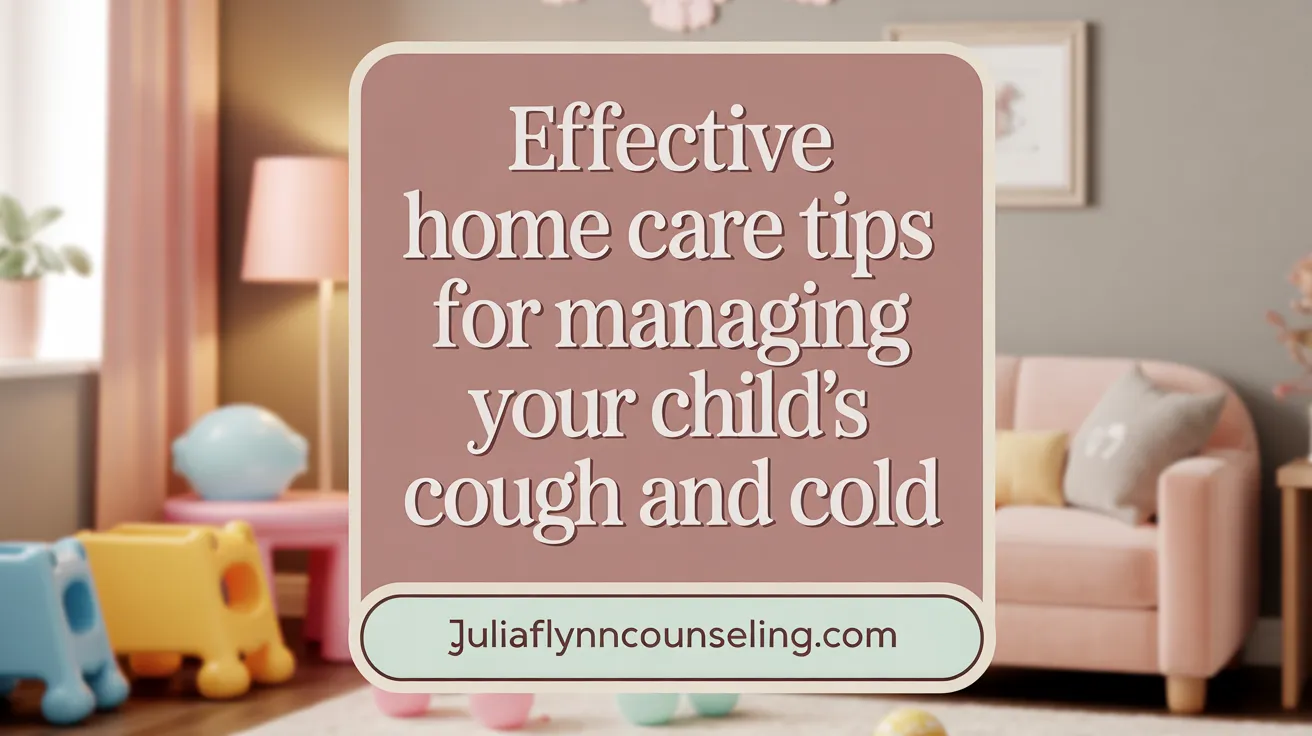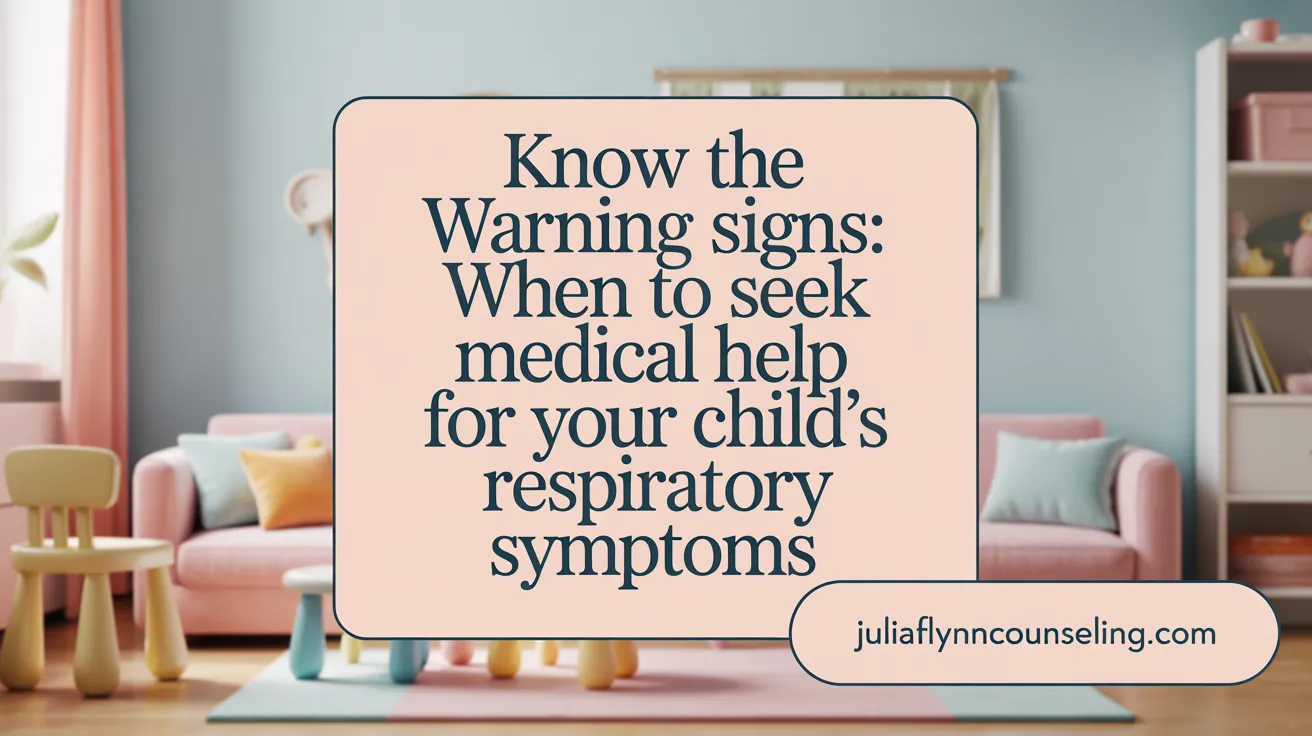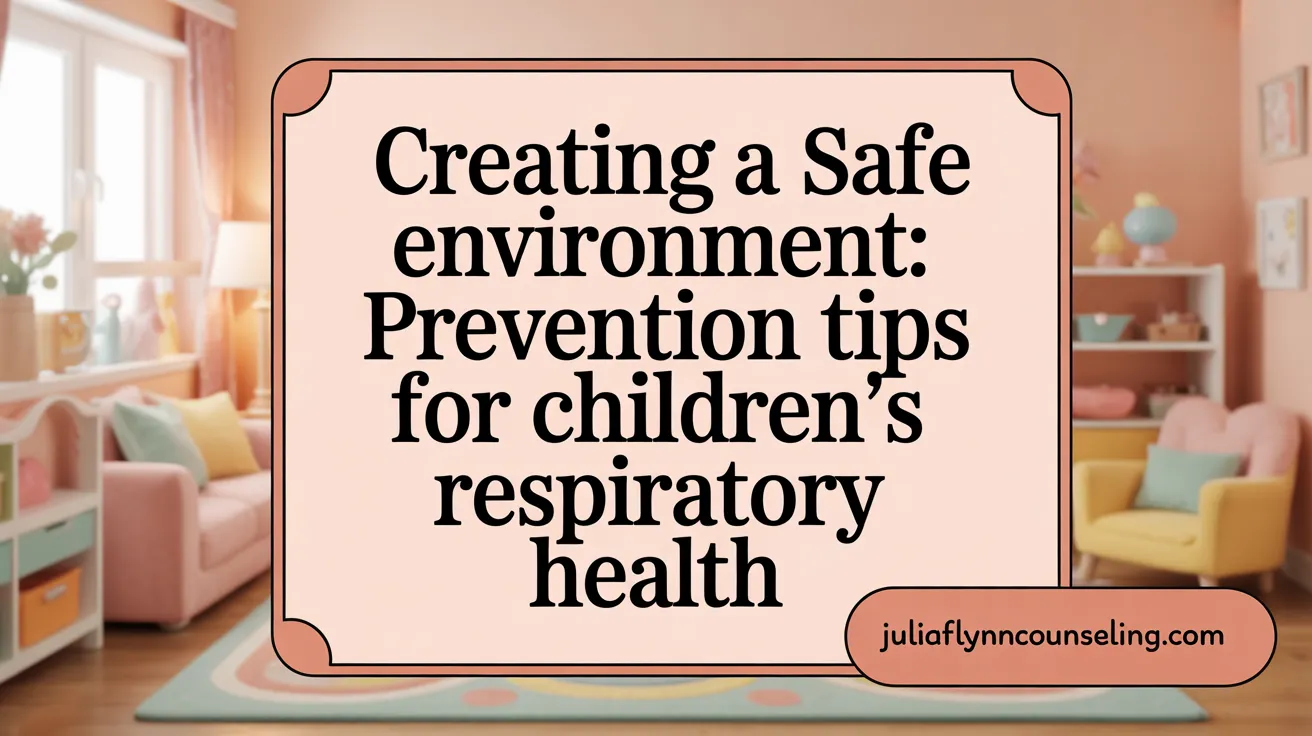Understanding Childhood Coughs and Wheezes
Coughs and wheezing in children are common concerns that cause unease for many parents and caregivers. While most respiratory symptoms in kids are mild and manageable at home, understanding their causes, recognizing when to seek medical care, and knowing effective natural remedies can make a significant difference in the child's comfort and recovery. This article explores the various types of coughs and wheezing children commonly experience, provides practical advice on home care, and highlights essential safety tips to ensure your child feels better safely and swiftly.
Common Causes and Types of Childhood Coughs and Wheezing
What are the common causes and different types of coughs and wheezing in children?
Children often develop coughs and wheezing due to various infections and health conditions. Viral illnesses like colds, influenza, bronchitis, and bronchiolitis are frequent culprits. Allergies, hay fever, and asthma also contribute significantly to respiratory symptoms.
There are several types of coughs, each with unique features:
- Dry cough: Usually caused by irritation or allergies, it doesn’t produce mucus.
- Wet or productive cough: Signs of mucus in the lungs, common in infections.
- Barking cough: Characteristic of croup, a viral condition causing inflammation of the larynx.
- Whooping cough: A bacterial infection with characteristic cough spasms.
Wheezing involves a high-pitched whistling sound during breathing, typically resulting from airway constriction or obstruction. This may be caused by asthma, bronchiolitis, or inhalation of foreign objects.
Symptoms to watch for
Recognizing serious signs is vital. Difficulties in breathing, bluish lips or face, a persistent high fever, or cough that lasts more than a week require urgent medical review. Most coughs in children stem from minor viral infections, which tend to improve over time, but persistent or severe cases need evaluation for underlying conditions.
Effective Natural Home Remedies for Coughs and Wheezing in Children
What are some natural home remedies for treating coughs and wheezing in children?
Natural remedies can provide comfort and support recovery in children suffering from coughs and wheezing. Ensuring children stay well-hydrated is essential; offering warm broths, herbal teas (caffeine-free), or simply water can help loosen thick mucus and soothe a sore throat.
Using humidity is also beneficial. Placing a cool-mist humidifier in the child's room adds moisture to the air, which reduces airway irritation and makes breathing easier. Steam inhalation from a warm shower or bath is another effective method to loosen mucus and calm coughs.
For children over one year, a small teaspoon of honey can soothe the throat and suppress coughs. Honey's antibacterial and anti-inflammatory properties make it a natural remedy, but it should not be given to children under one year due to the risk of infant botulism.
Saline nasal sprays or drops help clear nasal congestion, which can contribute to coughing or wheezing. For younger children who cannot blow their noses, a suction bulb can be used to remove mucus, reducing irritation.
Elevating a child's head during sleep with an extra pillow can facilitate mucus drainage and reduce nighttime coughing. Ensuring the child gets sufficient rest allows the immune system to fight off infections more effectively.
Avoidance of irritants like smoke, strong perfumes, or pollutants is recommended to prevent worsening symptoms.
Parents should observe their child's condition carefully. Persistent or severe symptoms—such as difficulty breathing, high fever, or cough lasting more than a week—require medical assessment. Overall, these natural approaches are simple, safe, and effective in managing minor respiratory discomforts in children.
Safe Management Strategies and Soothing Techniques for Children's Coughs and Colds

How can safe, natural methods be used to manage and soothe children's coughs and colds?
Managing coughs and colds in children safely involves a variety of natural remedies that focus on comfort and relief. Ensuring rest and proper hydration are essential, as fluids like warm tea, broth, or water with lemon help thin mucus, making it easier to clear from the airways. These liquids also soothe sore throats.
Humidification is another simple, effective approach. Using a cool-mist humidifier in the child's room adds moisture to dry indoor air, which can reduce coughing and ease congestion. Alternatively, running a warm shower or bath creates water vapor that a child can breathe in to loosen mucus.
For nasal congestion, saline nose drops or sprays are gentle and safe options. They help soften dried mucus, making it easier to clear, especially in young children. Elevating the child's head during sleep with an extra pillow can decrease the frequency of nighttime coughing caused by postnasal drip.
In children over one year, honey (½ to 1 teaspoon) has been found effective for soothing the throat and reducing coughing, particularly at night. Cold treats such as popsicles or ice cream can also provide comfort and help with hydration.
Additional natural strategies include warm salt water gargles for older children and steam inhalation, which can be achieved through a warm shower or a bowl of hot water, to further loosen mucus.
These methods avoid the use of medications, making them suitable for mild symptoms and are supported by health professionals as safe, gentle ways to help children recover comfortably from colds and coughs.
Guidance for Parents: Home Care and Symptom Relief for Childhood Coughs

What guidance should parents and caregivers follow for effective home care and symptom relief for childhood coughs?
Parents and caregivers can help children recover comfortably by following proven home remedies and maintaining a supportive environment. Regular rest is essential, allowing the child's immune system to fight off infections.
Hydration plays a crucial role, so offering warm liquids like caffeine-free tea, broth, lemon water, or warm milk helps soothe sore throats and loosen mucus. Cold treats such as popsicles or ice cream can also provide relief by calming the throat and keeping the child hydrated.
Creating a moist environment is beneficial. Using a cool-mist humidifier in the child's room adds moisture to the air, which can reduce irritation in the airways and help loosen mucus. Inhaling steam from warm baths or showers can further ease congestion and soothe the respiratory tract.
Nasal congestion can be alleviated with saline drops or sprays, especially for young children who cannot blow their noses. For infants and toddlers, a suction bulb helps remove dried mucus and clear nasal passages.
For children over 12 months, honey (½ to 1 teaspoon) is a safe, natural option to soothe the throat and reduce coughing, especially at night. Honey contains antibacterial and anti-inflammatory properties, making it more effective than some over-the-counter cough syrups for persistent coughs.
Home remedies such as gargling with warm salt water (for children over 6 or 7 who can gargle without swallowing) can relieve sore throats and congestion. Elevating the child's head with extra pillows during sleep can reduce nighttime coughing caused by postnasal drip.
Parents should constantly monitor their child's symptoms and seek medical advice if the cough persists longer than three weeks, worsens suddenly, or if the child develops difficulty breathing, high fever, or shows signs of distress.
Overall, most childhood coughs are viral and tend to resolve within a couple of weeks with supportive home care. Medications should be used cautiously and only as advised by healthcare professionals when symptoms warrant medical treatment.
Recognizing When to Seek Medical Attention for Children's Respiratory Symptoms

What symptoms or signs indicate that medical attention is required instead of home care for children's respiratory issues?
Parents should be vigilant in monitoring their child's respiratory health. Medical help becomes necessary if there are signs of difficulty breathing — such as rapid or labored breathing, chest retractions, wheezing, or stridor (a high-pitched sound during breathing). Blue discoloration of the lips, face, or fingernails is a serious sign that requires immediate medical attention.
Other concerning indicators include a persistent high fever that does not improve or worsens, signs of dehydration like no urination for over 8 hours, dry mouth, or lack of tears when crying. If symptoms like coughing, congestion, or wheezing intensify, or last beyond their typical duration (more than 4 weeks), prompt evaluation by a healthcare professional is advised.
In emergency situations, children who cannot speak or swallow, pass out, or stop breathing should be taken to emergency services immediately, with a call to 911. Children with underlying conditions such as asthma, cystic fibrosis, or other respiratory illnesses showing worsening symptoms also require quick medical assessment.
Overall, any suspicion of severe illness, or if symptoms worsen despite home remedies, necessitates urgent medical attention to ensure proper care and prevent complications.
Safety Tips and Prevention: Supporting a Healthy Environment for Children with Coughs and Wheezing

What safety tips should parents keep in mind, and when should they seek medical advice for children's coughs and respiratory symptoms?
Creating a safe environment and knowing when to seek medical help are crucial for managing children's coughs and wheezing. Parents should avoid overusing cough medicines, as these are not recommended for children under six years old and can sometimes cause side effects in older kids. Honey, a natural remedy for soothing coughs, should not be given to children under one year due to the risk of infant botulism.
Preventing exposure to irritants is vital. Keep children away from cigarette smoke, strong perfumes, and other environmental allergens that can worsen respiratory symptoms. Using a humidifier or placing a steamy shower in a bathroom helps maintain proper air moisture, which eases breathing and alleviates coughs.
It is important to follow age-specific advice when administering remedies. For example, saline nasal drops are safe for babies and young children to help clear nasal congestion. Older children over 5 years can try cough drops or hard candies to soothe their throats.
Parents should monitor their child's symptoms closely. Seek urgent medical care if the child shows signs of difficulty breathing, such as rapid or labored breathing, bluish lips or face, or if the cough is severe or persistent beyond a week. Symptoms like a barking cough (croup), high fever over 102°F, or wheezing should prompt immediate evaluation.
Additionally, watch for signs of severe distress, including lethargy, inability to feed, or chest retractions. Regular check-ups and following vaccination schedules can help prevent some respiratory illnesses.
In summary, supportive home care, avoiding irritants, age-appropriate remedies, and prompt medical attention when needed form the foundation of safe and effective management of childhood coughs and wheezing.
| Practice Area | Recommendations | Additional Notes |
|---|---|---|
| Avoid Irritants | Keep away from tobacco smoke and strong allergens | Essential for children with sensitive airways |
| Use Medications Carefully | Follow age guidelines for remedies like honey and cough drops | Consult healthcare providers for advice |
| Maintain Humidity | Use humidifiers or steam inhalation | Helps loosen mucus and soothe airways |
| Age-specific Precautions | Do not give honey to infants under 1 year; avoid OTC cough medicines under age 4 | Use natural remedies when possible |
| Preventive Measures | Regular hand washing, vaccination, and avoiding exposure to sick individuals | Support overall respiratory health |
By adhering to these safety principles, parents can significantly reduce risks and support faster recovery in children with cough and wheezing.
Caring for Childhood Coughs and Wheezes: Balancing Home Remedies and Medical Care
Most coughs and wheezing episodes in children are caused by common viral infections that improve with time and simple supportive home care. Incorporating safe, natural remedies such as hydration, use of humidifiers, honey for children over one year, and saline nasal treatments can provide effective relief and comfort. Equally important is recognizing when symptoms signal a more serious condition requiring prompt medical attention. Parents and caregivers should maintain vigilance for warning signs and practice prevention by avoiding irritants and ensuring a healthy environment for their children. With informed home care and timely professional guidance, managing childhood coughs and wheezing becomes less daunting, helping children recover comfortably and safely.
